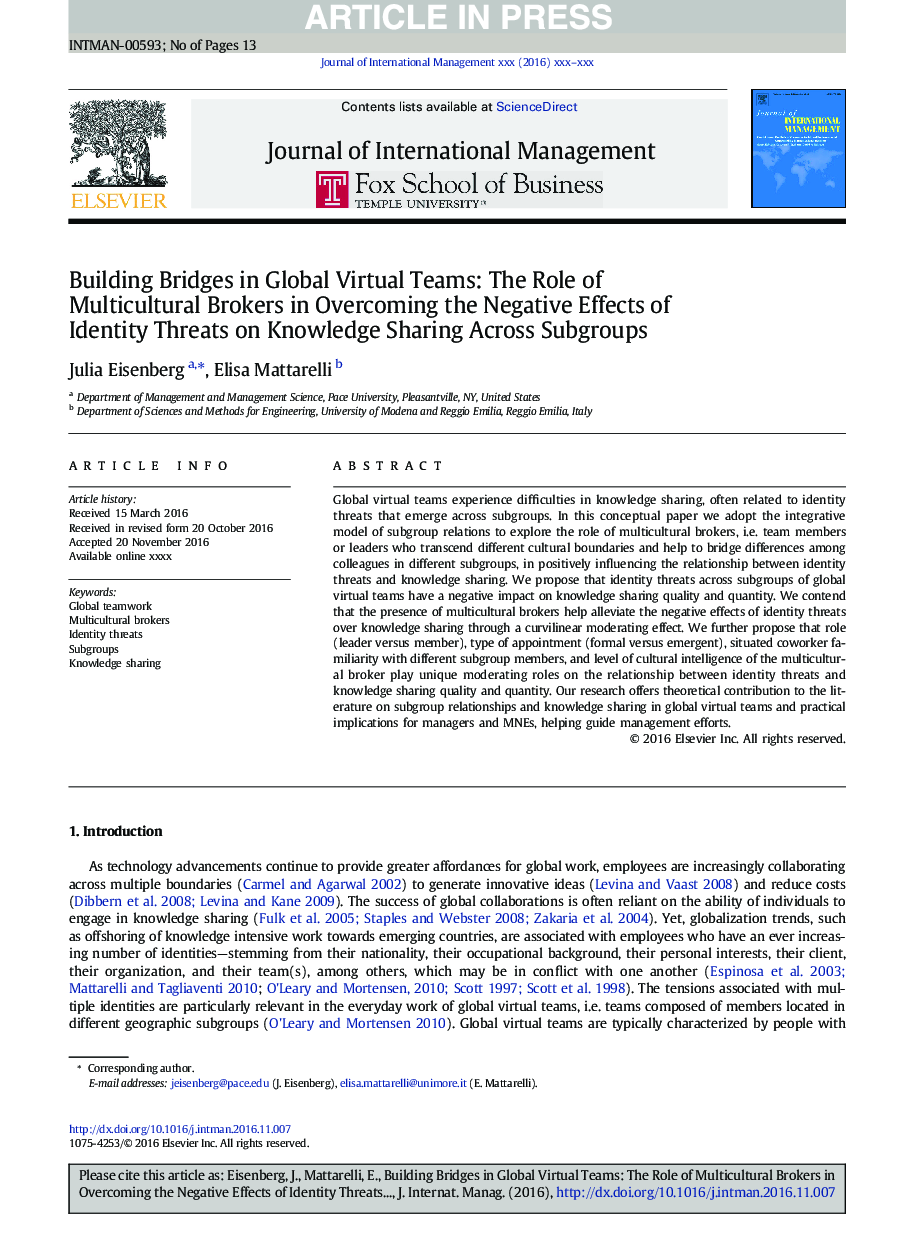| Article ID | Journal | Published Year | Pages | File Type |
|---|---|---|---|---|
| 7426562 | Journal of International Management | 2017 | 13 Pages |
Abstract
Global virtual teams experience difficulties in knowledge sharing, often related to identity threats that emerge across subgroups. In this conceptual paper we adopt the integrative model of subgroup relations to explore the role of multicultural brokers, i.e. team members or leaders who transcend different cultural boundaries and help to bridge differences among colleagues in different subgroups, in positively influencing the relationship between identity threats and knowledge sharing. We propose that identity threats across subgroups of global virtual teams have a negative impact on knowledge sharing quality and quantity. We contend that the presence of multicultural brokers help alleviate the negative effects of identity threats over knowledge sharing through a curvilinear moderating effect. We further propose that role (leader versus member), type of appointment (formal versus emergent), situated coworker familiarity with different subgroup members, and level of cultural intelligence of the multicultural broker play unique moderating roles on the relationship between identity threats and knowledge sharing quality and quantity. Our research offers theoretical contribution to the literature on subgroup relationships and knowledge sharing in global virtual teams and practical implications for managers and MNEs, helping guide management efforts.
Keywords
Related Topics
Social Sciences and Humanities
Business, Management and Accounting
Business and International Management
Authors
Julia Eisenberg, Elisa Mattarelli,
